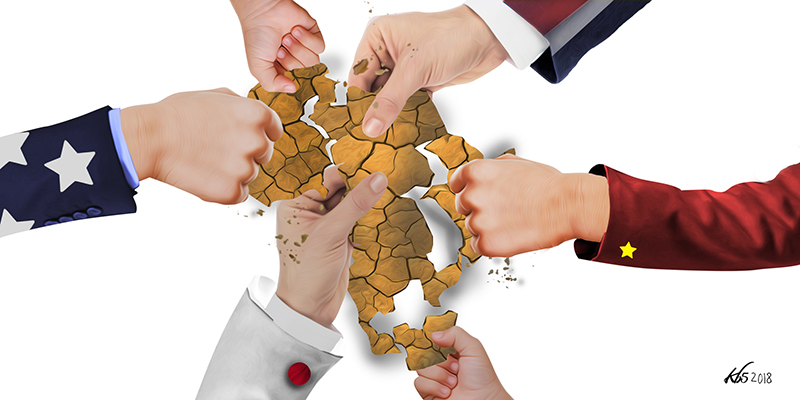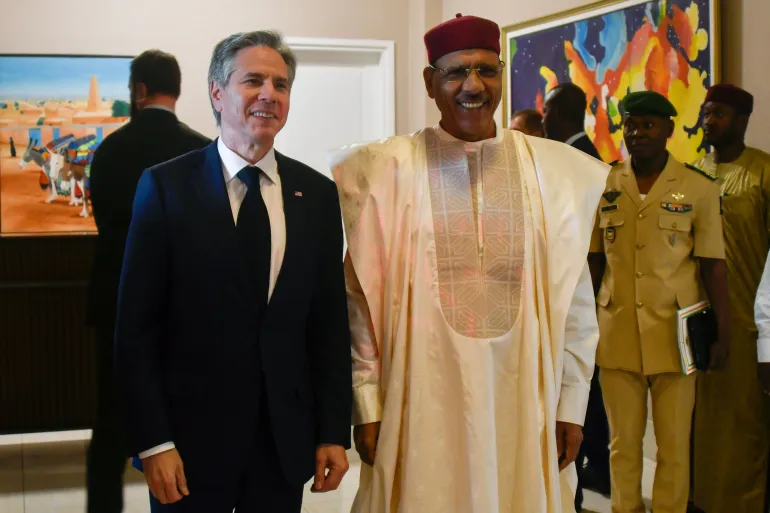Europe is increasingly turning to Africa to find alternatives for Russian energy supplies it has shunned since the start of the war with Ukraine, while the United States, China and Russia are racing for economic influence on the continent. These four global powers are in a race to win over Africa, the continent’s market of more than a billion people and tap its natural resources.
Hungry for alternatives to Russian gas, European leaders have spent months eyeing fossil fuel projects across Africa. China has spent two decades expanding its political and economic relations with the continent, while Russia is also widening its involvement on the continent, mainly through arms sales and mining projects.
“The United States is all in on Africa’s future,” US President Joe Biden told the 49 African leaders attending the US-Africa Leaders Summit last December, underscoring his administration’s efforts to boost ties with Africa after four years of neglect under President Trump.
These outreach efforts centered around political, military, economic and cultural initiatives are taking place in overlap with all four powers wooing of Africa, whereby the continent is also at the heart of a geopolitical scramble for its mineral resources and rare-earth minerals. Senegal and Mauritania are planning to ship liquefied natural gas (LNG) to Germany, while the African Union is pushing for more energy infrastructure, including fossil gas. From Nigeria to Egypt and Algeria to Mozambique, countries across Africa are pushing to extract more gas to be shipped to Europe.
Meanwhile, analysts see China and Russia as jostling to bolster their presence in Africa to tap its rich natural resources. China has been relentless with its ‘soft loans’, extensive provision of technical knowhow and indirectly addressing Africa’s many developmental needs, while Russia’s approach appears more “opportunistic”.
For three decades, China has managed to secure mining deals across the African continent with the availability of cheap labor and weak regulations. Currently, however, while China maintains its command, this position is being challenged by the US and EU, both of which are motivated to minimize their vulnerability towards China and thus have actively discussed rare earth projects in the African continent.
To reduce China’s dominance in the African market, both the US and EU are establishing new strategic partnerships with countries in the continent. Meanwhile, Moscow has sought to strengthen its political ties across Africa, while its on-the-ground proxy, the Wagner Group, seeks financial advantage, in the form of mining and extractive rights, including for diamonds, rubies and other gems, gold, rare metals and rare earth minerals.



